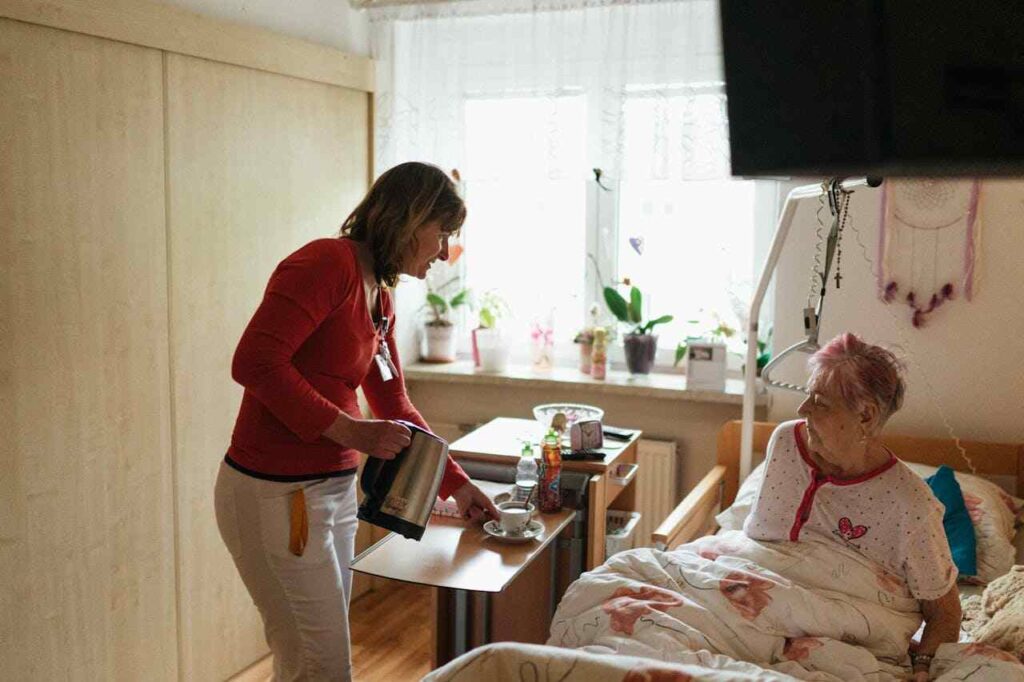Many people worry about the financial consequences of moving into a nursing home while weighing long-term care choices. One often asked question is, “Do nursing homes take your Social Security check?” Knowing how finance for nursing homes operates and the function of Social Security benefits can enable you to make wise choices for a loved one or yourself.
Analyzing Nursing Home Expenses
Those who require help with everyday tasks and medical attention not available at home usually depend on nursing home care. Still, this treatment comes with a big expense. For their services which include accommodation and board, medical treatment, and personal care assistance nursing homes charge. The location, degree of care needed, and particular nursing facility determine the cost.
Funding for Nursing Home Care Private Pay
Many people first cover nursing home expenses out-of-pocket. We call this often private pay. Usually covering these costs are personal savings, retirement funds, and assets until they run out.
Long-Term Medical Insurance
Those with long-term care insurance can pay for nursing home treatment with their policy. This kind of insurance is meant to pay for long-term care expenses including stays in a nursing home.
Medicaid
For those with low income, Medicaid is a government program designed to assist in nursing home expenses. Those who want Medicaid have to satisfy specific income and wealth requirements. Medicaid will pay most or all of the nursing home expenses after qualifying is achieved.
Use of Social Security Benefits in Residential Elderly Care
Do Social Security Checks Get Taken at Nursing Homes?
Nursing facilities do not pick your Social Security check straight forwardly. Still, your Social Security payments are seen as part of your income and can cover nursing home expenses. Most of your income including Social Security benefits when you live in a nursing home and are on Medicaid is usually used to pay for your care; Medicaid pays the remaining balance. Usually depending on your state, you are allowed to keep a little personal needs allowance from your Social Security payment.
When can a nursing home pick your social security check?
A care facility cannot choose your Social Security check straight forwardly. If you are on Medicaid, though, your Social Security income will help with your cost of treatment. Usually receiving payments straight from Medicaid, the nursing home will pay your share of the expenses using your Social Security income. This guarantees you a modest allowance for personal needs and guarantees the nursing home is paid for the care they deliver.
Handling Money in a Nursing Home under Guardianship and Power of Attorney
A family member or trusted friend might be named guardian or given power of attorney for those who struggle with financial management. Managing the Social Security funds and making sure they are used sensibly to pay for nursing care expenses will fall to this person.
Individual Need Allowance
Nursing home residents on Medicaid are let to retain some of their money for personal needs. We call this the personal needs allowance, PNA. Though state-specific, the monthly amount is usually a meager sum meant for personal needs not covered by the nursing home.
Assistance with financial planning
See an elder law attorney or a financial advisor to assist you negotiates the complexity of paying for nursing home care. These experts can help you qualify for Medicaid, maximize your Social Security income, and guard your assets.
Conclusion
Although nursing facilities might not accept your Social Security check directly, especially in cases involving Medicaid, your Social Security payments are quite important in helping to fund the expenses of care. Knowing how these advantages are used and the financial choices accessible can assist you or your loved one get the required care free from unnecessary financial burden. Effective management of nursing home expenses depends mostly on good planning and expert counsel.
For more articles you can visit our blog royalsprinter.com

